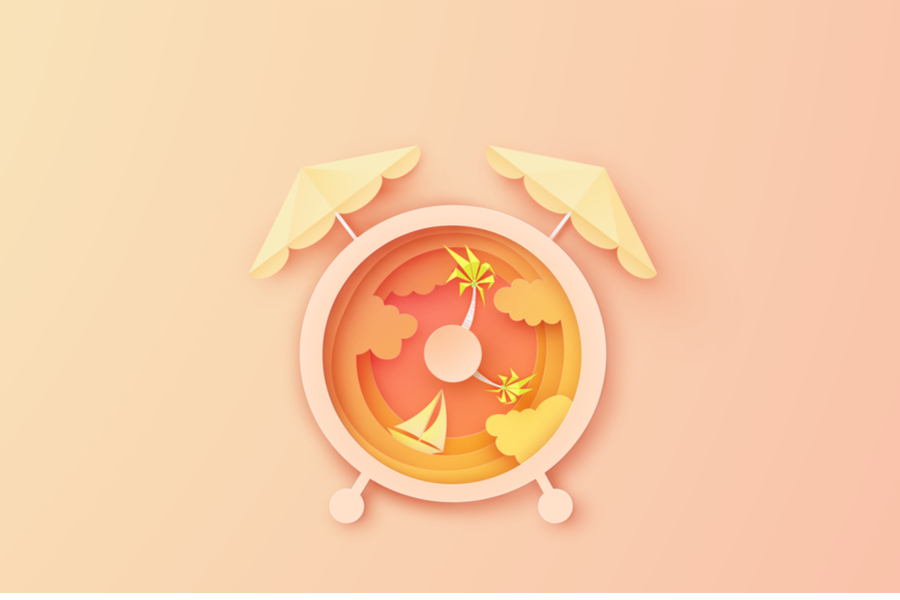How to have the perfect longest day

The longest day (21 June) is nearly upon us – and we don’t want you to feel like you’ve squandered it. Follow this guide to spend the damn-near 17 hours of daylight available in the most perfect way imaginable…
5.30am – YOU TIME
OK, this is a controversial way to start any day. And no, we haven’t taken leave of our senses. That’s because if you can make this early start routine, it is utterly transformative. I’ve made 5.30am starts the norm. As someone who’s married with two children, this 60-90 minute window is my alone time.
I don’t go for a run, or cycle, or anything that screams “health”. Rather, I sit still. The chatter in the head calms, and this quiet, reflective moment sets me up for the day. And yes, I watch TV I can’t watch with the family.
7am – WORK OUT
If you can make this habit-forming, you’ll feel like you have the world by the tail. The Journal of Physiology has found morning workouts can make you feel more alert throughout the day before energy levels dip in the evening; if you’re someone who likes a sound sleep, this is a good thing.
Given exercise also combats stress, a morning sweat is the perfect way to tee yourself up for a day of work. And who doesn’t want to feel ever-so-slightly smug following an early morning session?
8.15am – BREAKFAST
Overnight oats are so easy to do. And because you prepared them last night, all you’re doing is taking them out of the fridge and scoffing them for slow burn energy release. Get showered and changed, and you’re on your way.
9am – WORK MEANS WORK
Want some great advice? Don’t fanny about. According to one report, we spend 28 percent of our working life wading through our inbox. You’re thinking about doing it now, aren’t you? Close your email down!
Checking them does not equate to work, and you’re more productive if you spend your working time, you know, actually working and leaving on time, rather than procrastinating and staying until 8pm. Working incredibly hard might not scream “perfect day”, but you’ll feel better and less anxious for getting more done.
1pm – LUNCH BREAK
Remember when we used to take a lunch break? London was all fields back then… Just a third of workers claim to do so now, although we’re surprised it’s as high as that. However, you simply must take one, mostly because your brain needs time to recuperate for the rest of the day. In fact, it’s in your company’s best interests for you to take one, as it makes you more productive.
Go for lunch with a colleague: connecting with friends is great for your mental health, it’s good for work-based camaraderie and you’ll be away from the work environment, which is important for psychologically hitting “CTRL ALT DELETE”.
2pm – BACK TO IT
Again, for sheer productivity, steer clear of the office “banter bus” – even if it is virtual on Google chat these days. Don’t be unfriendly and chat when it’s appropriate, though.
5.30PM – GET OUT
For the love of God, run for the hills. Working long hours has been linked to stress, anxiety and heart disease. What’s more, you’re not delivering career-best stuff once you’ve been at your desk for such a length of time. One study shows working more than 40 hours a week actually makes you less productive…
6.30PM – CINEMA
Hello, this day just got 50 per cent more awesome. A trip to the cinema can have profound effects on our wellbeing: film storylines can help us process feelings and emotions, especially if there are themes that reflect our own life.
Gary Solomon PhD has written two books on cinema as therapy and points out suspenseful films release cortisol, followed by dopamine.
Think of it as a couple of hours where you’re not staring at your phone. And if you are staring at your phone in the cinema, you should be blasted into space.
9.30PM – BED
What’s so perfect about going to bed at 9.30pm? Well, perhaps there’s time for…well, you know. After all, you did work out at 7am. Why not end the day with a more fun one?
Anything that gets the heart going is good for you, and sex can also lower stress. One study in Pennsylvania found those who had sex once or twice a week are better at fending off illness (thanks to higher levels of immunoglobulin A (IgA) in their body), while a test of 3,000 Americans found those who had sex felt healthier. Even if one of you “has a headache”, a hug can lower both heart rate and blood pressure.
So today, you watched TV alone, worked out, ploughed through a mountain of work, bonded with a pal, had a good cry in the cinema and then had sex. OK, it might not be the perfect day, but it’s still a bloody good one.











